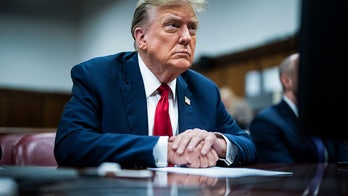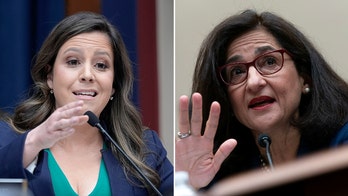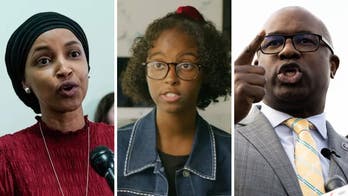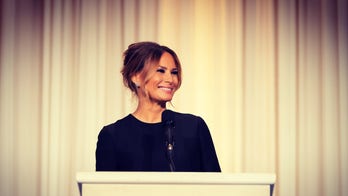WARSAW, Poland – Mitt Romney, on the last leg of his overseas tour, heralded Poland as a beacon for economic liberty and an unwavering ally of the United States in troubled times.
Delivering a capstone address in Warsaw Tuesday morning, the Republican presidential candidate highlighted Poland's history emerging from Soviet occupation and breaking loose from Communist doctrine.
"In a turbulent world, Poland stands as an example and defender of freedom," Romney said.
Romney praised the European nation for turning away from the "false promise of a government-dominated economy" and embracing free enterprise.
He added: "Poland has no greater friend and ally than the people of the United States."
The address and the visit served to highlight Romney's own campaign platforms, such as support for smaller-government economic policies. The two-day trip to Poland also highlights Romney's stance toward Russia. He has labeled Russia as America's "No. 1 geopolitical foe," a characterization that's not unwelcome in a country that still fears Russia.
Romney delivered his remarks in a deeply Roman Catholic country that for years has favored Republicans over Democrats. This is partly a legacy of President Ronald Reagan, whose efforts helped bring down communism across Eastern Europe, for which Poles remain grateful.
Poland has been a stalwart U.S. ally and significant contributor to military operations in Iraq and Afghanistan.
Romney met Tuesday with Polish Foreign Minister Radoslaw Sikorski. The two men discussed the longstanding ties between the two nations as well as the ongoing conflict in Afghanistan.
"On behalf of our countrymen, I express deep appreciation for your willingness to fight with us, to stand with us, and to be our friends in times of crisis and military conflict," Romney said.
"Poland has excellent ties with the United States, regardless of which American party is in power," Sikorski said. "We remember Ronald Reagan's warm feelings for Poland's Solidarity and also the fact that we joined (NATO) during Bill Clinton's term."
Romney is trying to wrap up his tour without incident, after a couple comments in Britain and then Israel stirred controversy. He suggested last week that the Brits might not be ready for the Olympics, and then in Jerusalem he told Jewish campaign donors Monday that their culture is part of what has allowed them to be more economically successful than the Palestinians. Outraged Palestinian leaders suggested Romney's comments were racist and out of touch with the realities of the Middle East.
Meanwhile, Romney visited Poland's Tomb of the Unknown Soldier, where he laid a wreath and greeted Polish soldiers who fought in World War II and the Iraq and Afghanistan conflicts. He also stopped to view a memorial to Pope John Paul II, who was born in Poland. He then met with President Bronislaw Komorowski.
Reporters got in a verbal altercation with traveling press secretary Rick Gorka while visiting the tomb. After reporters shouted questions about Romney's gaffes, Gorka told them to show some "respect." Pressed again, Gorka told a reporter to "shove it."
Romney's visit, campaign officials said, was at the invitation of Lech Walesa, the Polish labor leader who co-founded the Solidarity movement and served as Poland's president during the country's transition out of communism.
Walesa effectively endorsed Romney when the Republican presidential candidate visited him Monday at the Artus Center in a historic neighborhood of Gdansk.
"I wish you to be successful because the success is needed to the United States, of course, but to Europe as well and to the rest of the world, too. So, Gov. Romney, get your success, be successful," Walesa told Romney through a translator.
Campaign officials said the visit to Poland came at the invitation of Walesa, but the current leadership of Solidarity distanced itself from the event and issued a statement critical of Romney on Monday.
Solidarity characterized Romney as being hostile to unions and against labor rights. It emphasized that it had no role in organizing Romney's visit and expressed support for American labor organizations.
The Associated Press contributed to this report.





